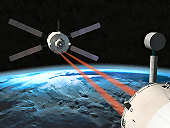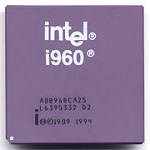 In yesterday’s edition of The Daily Bugle, the excellent daily newsletter distributed by Jim Bartlett from Northrop Grumman, Carolyn Lindsey and I wrote a piece on the recent message on registration applications that DDTC released last week on its website. We said:
In yesterday’s edition of The Daily Bugle, the excellent daily newsletter distributed by Jim Bartlett from Northrop Grumman, Carolyn Lindsey and I wrote a piece on the recent message on registration applications that DDTC released last week on its website. We said:
Registration of foreign sales representatives for U.S.-origin defense articles is mandatory. If a foreign sales representatives application is not filed, delayed or rejected, even for minor mistakes, a U.S. exporter risks civil fines and criminal penalties if that exporter utilizes the services of the unregistered foreign sales representative.
This was a reference to the broker registration requirements contained in Part 129 of the ITAR. To be clear, although most FSRs will meet the definition of a broker under part 129, some will not. Part 129 defines a broker as someone who “acts as an agent for others in negotiating or arranging contracts, purchases, sales or transfers of defense articles or defense services in return for a fee, commission, or other consideration.” That is, obviously, an extremely broad definition but, equally obviously, there may be some FSRs that won’t fit within it. An FSR that only provides after-sales support for a defense article would seem to be outside this definition. Also, the FSR wouldn’t be a broker if he or she isn’t an “agent for others,” although the scope and meaning of that phrase isn’t altogether clear.
If an FSR is a broker, then under section 129.3 of the ITAR he is required to register with DDTC if he is a “U.S. person, wherever located, [or] any foreign person located in the United States or otherwise subject to the jurisdiction of the United States.” The meaning of the phrase “otherwise subject to” U.S. jurisdiction has been the cause for some debate.
Several years ago DDTC tried to short-circuit the debate by saying informally at industry conferences that a foreign person outside the United States performing brokering services with respect to U.S.-origin defense articles or defense services was, in DDTC’s view, “otherwise subject to” U.S. jurisdiction. They further announced that they would issue guidelines to make this clear but emphasized that this was not a change in interpretation (although arguably it was). They have continued to take this position publicly including, most recently, at the Fall 2006 conference of the Society for International Affairs and at the March 21, 2007 meeting of the Defense Trade Advisory Group (“DTAG”)
DDTC Compliance Director David Trimble was quoted in The Export Practitioner (subscription required) as saying at the March meeting of DTAG the following with respect to planned revisions of Part 129:
As you know, the reg has always said foreign person ‘otherwise subject to U.S. jurisdiction’. In our past practices, we’ve made it clear that a foreign person dealing in U.S.-origin defense articles is subject to U.S. jurisdiction clearly by virtue of all the retransfer controls we have on defense articles.
We will be specifically including that in the regulation just to call it out so that it leaps off the page and grabs the reader.
DDTC has implemented this position in a number of ways. First, it began to “return without action” license applications that listed unregistered companies or individuals as intermediate consignees unless they clearly fell within the category of parties exempt from registration under section 129.3(b)(3), e.g., freight forwarders, air carriers, etc.
Second, DDTC amended the ITAR to make some problematic provisions consistent with the new interpretation. In April 2006, DDTC amended the provision of section 129.4 which had required broker registration applicants to submit documentation that the applicant “is incorporated or otherwise authorized to do business in the United States.” Section 129.4 was amended to contain the following language:
Foreign persons who are required to register shall provide information that is substantially similar in content as that which a U.S. person would provide under this provision (e.g., foreign business license or similar authorization to do business).
The 2006 amendment also added section 127.1(a)(6) which made clear that the activities of brokers outside the United States would be deemed a violation of the ITAR.
Third, DDTC has amended the registration procedures on its website to accommodate the registration of foreign brokers with no contacts with the U.S. other than engaging in brokering activities with respect to U.S. origin defense articles and defense services. In the most recent update, the website now makes clear that foreign brokers need not comply with the requirement that checks used to pay registration fees be drawn on U.S. banks.
Now, admittedly, the ITAR simply says “otherwise subject to” U.S. jurisdiction and the DDTC’s informal “interpretation” of this may not have the force of law. Indeed, I have argued in an article in The Export Practitioner (subscription required) that this interpretation of “otherwise subject to” is contrary to the legislative history of the statute under which these rules were promulgated. But there seems to be no question that in the view of the agency that interprets these regulations that a foreign person dealing in U.S. origin defense articles is “otherwise subject to” U.S. jurisdiction and is required, if performing brokering services, to register with DDTC.
 The “Jules Verne,” the automated transfer vehicle (“ATV”) being designed by NASA and the European Space Administration (“ESA”) to ferry supplies to the International Space Station is, by definition, a defense article covered by Category XV of the United States Munitions List (“USML”). As such, technical assistance agreements must be in place for each transfer of technical data on the ATV from U.S. contractors to their European counterparts.
The “Jules Verne,” the automated transfer vehicle (“ATV”) being designed by NASA and the European Space Administration (“ESA”) to ferry supplies to the International Space Station is, by definition, a defense article covered by Category XV of the United States Munitions List (“USML”). As such, technical assistance agreements must be in place for each transfer of technical data on the ATV from U.S. contractors to their European counterparts. 
 Posted by
Posted by  Category:
Category: 

 Rumors of disagreements between the Directorate of Defense Trade Controls (“DDTC”) and the Defense Department over export controls administered by the DDTC were confirmed today by an
Rumors of disagreements between the Directorate of Defense Trade Controls (“DDTC”) and the Defense Department over export controls administered by the DDTC were confirmed today by an  Jeffrey Lewis, who works at a DC think tank and who blogs at Arms Control Wonk,
Jeffrey Lewis, who works at a DC think tank and who blogs at Arms Control Wonk,  In yesterday’s edition of The Daily Bugle, the excellent daily newsletter distributed by Jim Bartlett from Northrop Grumman, Carolyn Lindsey and I wrote a piece on the recent message on registration applications that DDTC released last week on its website. We said:
In yesterday’s edition of The Daily Bugle, the excellent daily newsletter distributed by Jim Bartlett from Northrop Grumman, Carolyn Lindsey and I wrote a piece on the recent message on registration applications that DDTC released last week on its website. We said: The Directorate of Defense Trade Controls (“DDTC”) has recently completed a review of registration applications and has reported in a
The Directorate of Defense Trade Controls (“DDTC”) has recently completed a review of registration applications and has reported in a 

